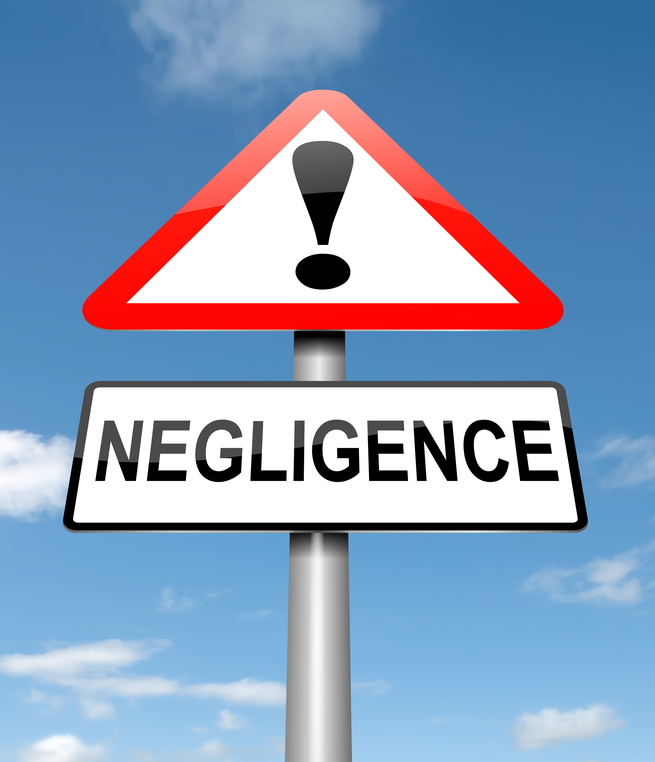Negligence
When an individual suffers a loss due to the negligent actions of another person (the negligent party), they may be entitled to make a claim against the person who causes the loss, such a claim would be classified as a claim for negligence.
What is the legal definition of negligence?
Section 5 of the Civil Liability Act 2002 defines negligence as a “failure to exercise reasonable care and skill.”
In order to establish that an act was negligent and for a person to be awarded damages the person who suffered the loss due to the negligence of another (the innocent party) needs to establish on the balance of probabilities that:
- There was a duty of care owed to the innocent party by the negligent party;
- There was a breach of that duty of care; and
- That the breach of the negligent party caused a loss to the innocent party.
What is a duty of care?
The words ‘duty of care’ are not specifically defined in the Civil Liability Act 2002.
In its simplest form, a duty of care can be defined as a duty one person or entity has for another to ensure that they act in such a way as to not cause any harm whether; physically to that person (death or injury), or to their property or to cause them an economic loss.
A simple example of a duty of care is the duty that all road users have on the road to ensure that they operate their motor vehicles in a safe and law-abiding manner so as as not to risk causing physical harm to other road users or damage to their property.
What is a breach of duty of care?
If it has been established that the negligent party owes a duty of care to the innocent party. The next query would be whether the negligent party has breach their duty of care, in so far as the innocent party is concerned.
Section 5B of the Civil Liability Act 2002, sets out several legal principles that apply to the legal concept of duty of care as follow:
“A person is not negligent in failing to take precautions against a risk of harm unless—
- the risk was foreseeable (that is, it is a risk of which the person knew or ought to have known), and
- the risk was not insignificant, and
- in the circumstances, a reasonable person in the person’s position would have taken those precautions. ”
In simple terms this means that the alleged conduct of a negligent party, may not amount to negligence unless:
- The negligent party could not have foreseen (predicted) that their actions put the innocent party at risk of incurring a loss whether to their person (injury or death) property or economically; and
- Any risk that could have been foreseen was not trivial; and
- That a reasonable person in the same or similar situation to the negligent party would have acted differently to minimize or avoid the risk of the loss alleged to have been incurred by the innocent party.
Causation
The final element in a negligence claim is establishing that the loss that the innocent party incurred was caused due to the breach of duty of the negligent party (causation).
Section 5D of the Civil Liability Act 2002, sets out several general principles pertaining to the issue of causation, including the following:
“A determination that negligence caused particular harm comprises the following elements-
- that the negligence was a necessary condition of the occurrence of the harm (
“factual causation” ), and - that it is appropriate for the scope of the negligent person’s liability to extend to the harm so caused
(“scope of liability” ).”
In the simplest terms this means that the loss incurred by the innocent person would not have been incurred but for the actions of the negligent party and that it is suitable (legally) to extend the breach of the negligent party to the loss incurred by the innocent party.
Damages
Once an innocent party has established that the negligent party; owed them a duty of care; that they have breached that duty of care and caused them a loss, then they would need to establish what monetary award they ought to receive because of of the negligence of the other party (damages).
How can we help?
A knowledgeable legal team can assist you navigate the complexities of a negligence claim, which range in their nature from motor vehicle collisions to professional negligence and assist you in obtaining the damages you may be entitled to.
Disclaimer: This is commentary published by Olympus Law Partners Pty Ltd is for general information purposes only. This should not be relied on as specific legal advice. You should seek your own legal and other advice for any question, or for any specific situation or proposal. The content also is subject to change.
Find more useful knowledge about your concerned topics at our Knowledge Hub.

